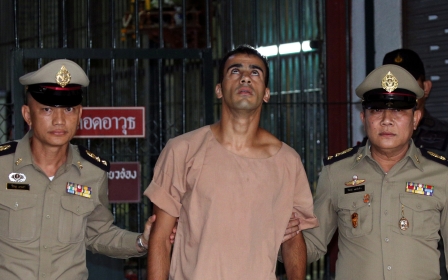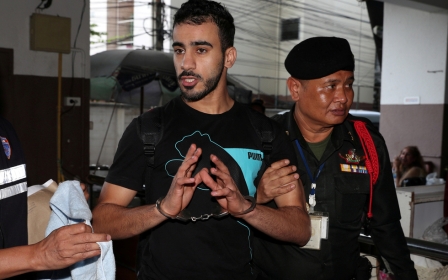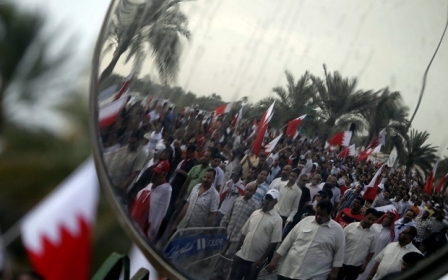Thailand frees Bahraini footballer Araibi after extradition bid dropped

A Bahraini footballer with refugee status in Australia, Hakeem al-Araibi, left a Thai jail on Monday after authorities dropped a controversial extradition case against him.
Araibi, 25, left the Bangkok remand prison shortly after state prosecutors announced Bahrain had dropped its request to extradite him, a witness told Reuters.
A Reuters witness said Araibi was seen leaving in a car and immigration officials said he was heading for the main international airport in the Thai capital.
Rights group Amnesty International, which lobbied for his release, later said Araibi had arrived at the airport.
Araibi, who fled Bahrain in 2014 and received refugee status in Australia, was arrested in November at a Bangkok airport while on a honeymoon trip following an Interpol notice issued at Bahrain's request.
Bahrain wanted Araibi, who said he faced torture if returned to Bahrain, for alleged crimes it accuses him of committing during the Arab Spring protests of 2011.
However, the Gulf nation withdrew the request, leading a Thai court to approve a motion by prosecutors to drop the case against the footballer, said Chatchom Akapin, an official in the Thai Attorney-General's office.
"There are no grounds to hold him anymore. It is his right to decide where he will go next. He is a free man," said Chatchom, the director-general of the office's international affairs department on Monday.
It was not immediately clear when or why Bahrain withdrew its request.
Footballer shackled
A Bahrain government spokesman declined to give details when asked who ordered the halt of the legal proceedings.
However, authorities in Bahrain, which has accused Araibi of crimes committed during the Arab Spring protests of 2011, said the country reaffirmed its right to pursue legal action against him.
In a statement, Bahrain's foreign ministry said it had noted the halt of legal proceedings and the verdict against the footballer remained in place.
Thailand's Ministry of Foreign Affairs said it had no comment on the case.
The detention of Araibi, who appeared with his feet in shackles at a court hearing last week, drew international criticism, with Australian authorities and fellow footballers urging Thailand to release him.
In the Australian capital Canberra, Prime Minister Scott Morrison welcomed the decision of the Thai government.
"We greatly respect the process that they have had to work through and we greatly appreciate their listening to the issues that have been raised by our government and many others," he told a news conference.
'Upholding international law'
"My thanks go to the wonderful people of Thailand for your support and to the Thai government for upholding international law," former Australia football captain Craig Foster, who helped lobby officials at world governing body FIFA to intervene on Araibi's behalf, said on Twitter after the news.
Monday's release follows an appeal, reported by media on Saturday, to the Thai prime minister from two Australian divers who helped save 12 Thai boys and their football coach from a flooded cave last summer.
Araibi has said he wants to return to Australia, where he has lived since 2014 and plays for a Melbourne football club.
He was convicted of vandalising a police station during 2011 anti-government protests in Bahrain and sentenced in absentia after he fled.
Araibi denies the charges, saying he was playing in a televised football match at the time of the attack.
New York-based Human Rights Watch has said Araibi was tortured by Bahraini authorities because of his brother's political activities during the 2011 protests.
Bahraini authorities deny allegations of torture.
Middle East Eye propose une couverture et une analyse indépendantes et incomparables du Moyen-Orient, de l’Afrique du Nord et d’autres régions du monde. Pour en savoir plus sur la reprise de ce contenu et les frais qui s’appliquent, veuillez remplir ce formulaire [en anglais]. Pour en savoir plus sur MEE, cliquez ici [en anglais].




